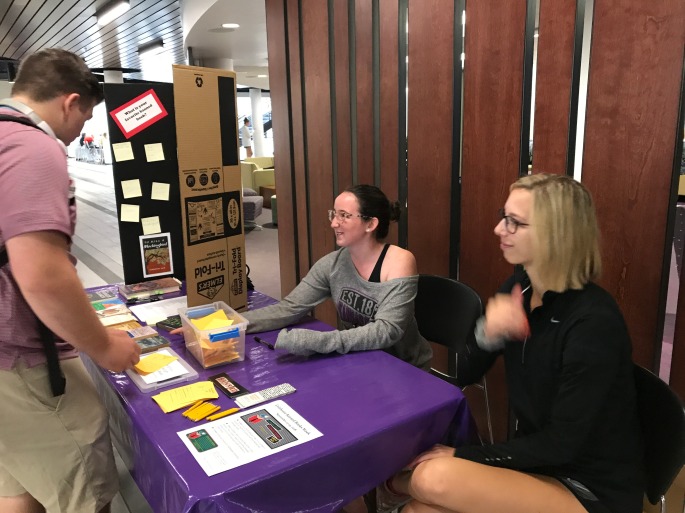Banned Books Week 2018 was September 23 through September 29. The annual event, hosted by the American Library Association’s Office for Intellectual Freedom, celebrates the freedom to read and raises awareness of literary censorship in schools and libraries across the globe.
This fall, as the president of my university’s chapter of Sigma Tau Delta International Honor Society, I helped organize banned books weeks events on campus. I also used my position as assistant culture editor at the K-State Collegian for good and coordinated a series of banned book reviews to be published in print and online over the course of the week. Here are some of the highlights of our efforts:

BANNED BOOKS WEEK CELEBRATES THE FREEDOM TO READ
- I wrote this article to highlight actions that were being taken on campus concerning Banned Books Week. Usually, I would have reviewed a banned book alongside others who did so that week, but it was fun (and a new experience) to take a step back and coordinate the review series while also working on setting up other campus events
BANNED BOOK HIGHLIGHT: “THE KITE RUNNER”
- Jacinta Mioni, an English major and classmate in my Louisa May Alcott class, wrote this article discussing The Kite Runner as a banned book. Her piece received praise both from the advisor of The Collegian and from a university distinguished professor

BANNED BOOK HIGHLIGHT: “SPEAK”
- Perhaps my favorite part of Banned Books Week happened on Friday the 28th. Savannah Winkler, a friend and fellow English major, wrote a Banned Book Highlight of Laurie Halse Anderson’s Speak. The article is phenomenal, and well worth the read. But then it got shared by the author on twitter, retweeted by Mara Wilson (the actress who played Matilda) and the ALA’s Office for Intellectual Freedom retweeted the article as well! It was cool to see my friend’s efforts and something I help coordinate reach a far wider audience than just our university campus.
Savannah’s article connects Speak, originally published in 1999, to current happenings including the testimony of Dr. Christine Blasey Ford. And that served as a reminder to me: though Banned Books Week is celebrated just one week out of the year, we should always be aware of literary censorship and the important role stories can have in people’s lives.
Whether it’s To Kill a Mockingbird making people uncomfortable or The Hate U Give discussing police brutality, challenges are continually being made against books in classrooms and libraries around the country. In 2017 the ALA received 354 reports of banned and challenged books, that’s almost one for every day of the year. And that’s not including the countless challenges that likely go unreported.
Celebrate Banned Books Week. If you do that by reading a banned book—that’s awesome, but don’t limit your reading of banned books to just one week.. The ALA’s commonly banned books lists can serve as a great starting place. Year round, read books that make you feel uncomfortable, challenge your assumptions about the world, and widen your perspective.

One thought on “Banned Books Week is Over, but Literary Censorship Doesn’t Stop”